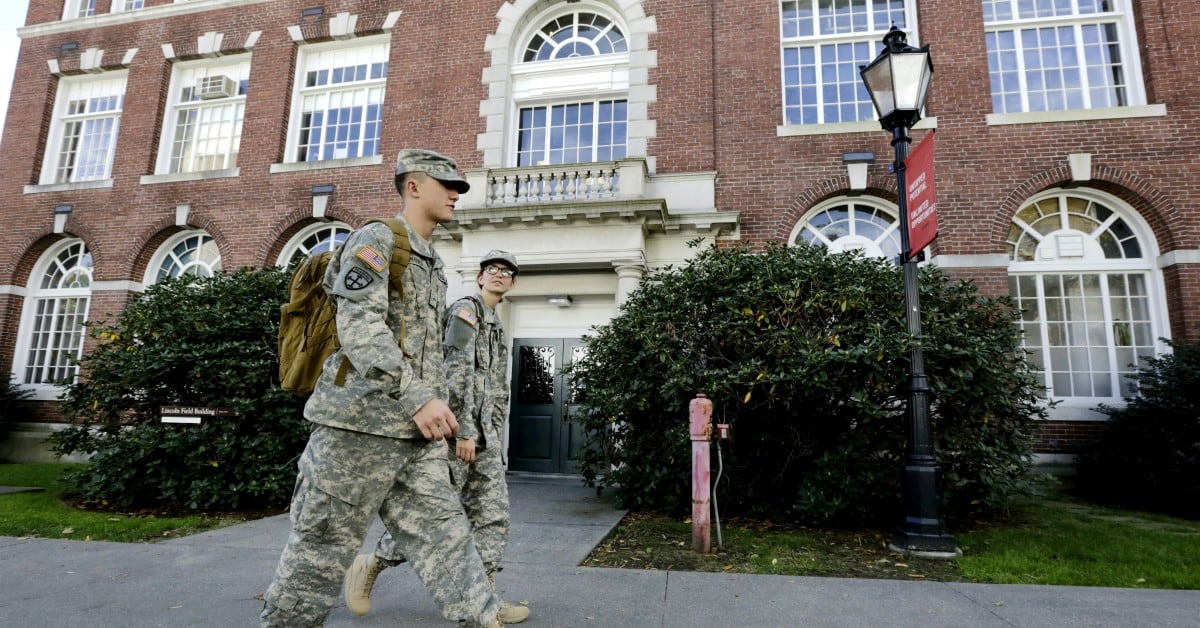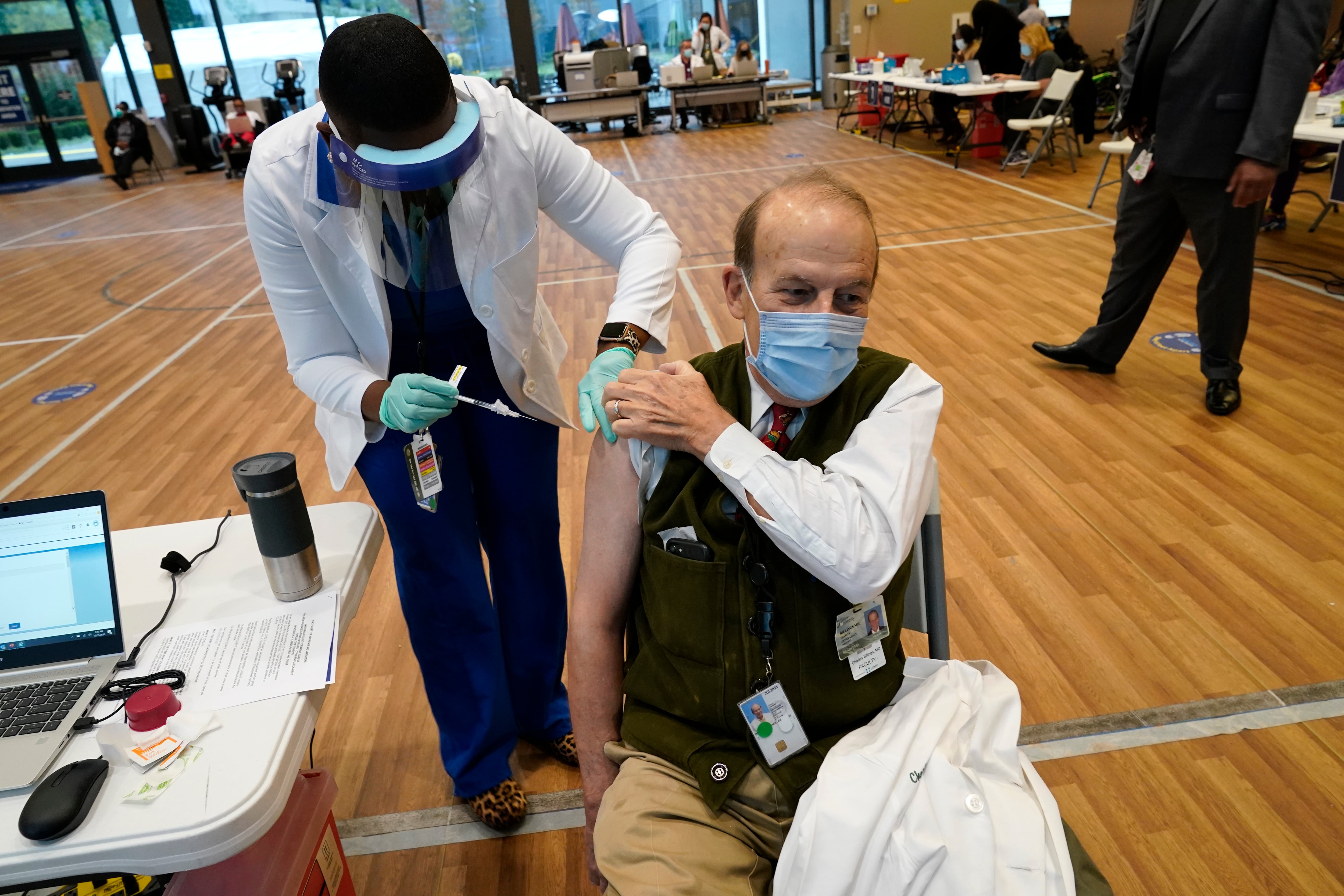Lawmakers on Wednesday finalized plans for major changes in for-profit colleges’ ability to recruit and enroll veterans in degree programs, but students are unlikely to see any school restrictions or closings as a result of the move for several more years.
That’s because Senate lawmakers added language delaying rule making on the sweeping changes for six months, to allow veterans advocates and for-profit industry officials time to adjust practices and minimize disruption for individuals completing their studies.
It’s a compromise that is being praised by both sides of the debate, but it also means the full impact won’t be seen until late 2023 at the earliest. But veterans groups said that doesn’t minimize the scope of the changes ahead, or the potential future benefits to weed out predatory schools focused more on enrolling veterans than providing quality education opportunities.
RELATED

“After nearly a decade of requests from veterans and military organizations, we are grateful Congress is moving to finally remove the target from the backs of veterans and servicemembers by closing this loophole,” said Carrie Wofford, president of Veterans Education Success.
“For too long, bad actor colleges have treated veterans and servicemembers as nothing more than dollar signs in uniform.”
At issue is the so-called 90-10 rule, which requires colleges and universities to have at least 10 percent of their revenues derived from non-federal sources like tuition or fundraising.
The idea behind the regulation is to ensure that for-profit institutions aren’t funded solely by federal dollars, essentially using taxpayer money as their only reliable source of income. However, under a loophole in existing rules, GI Bill benefits and Defense Department Tuition Assistance programs are not counted as federal money.
“For decades, the 90-10 loophole incentivized predatory schools to unfairly target student veterans and members of the military,” said Jared Lyon, president of Student Veterans of America.
Schools with large numbers of students using the GI Bill could plus up their federal money well above the 90 percent mark, increasing their guaranteed funds regardless of student performance.
“This legislation will protect recipients of the GI Bill, including military widows and surviving children, from those who would take advantage of their government education benefits to lure them into attending their predatory for profit institutions of higher learning,” said Bonnie Carroll, president and founder of the Tragedy Assistance Program For Survivors.
Plans to close the loophole gained some momentum in Congress last session, but failed to become law before the end of term. So congressional Democrats included language to close that loophole in the earliest versions of their $1.9 trillion coronavirus relief bill.
But several Republicans objected to that plan, saying it moved too quickly and risked disrupting veterans’ education plans by forcing schools to close too quickly if they weren’t in line with the new regulation.
Over the weekend, a bipartisan group of lawmakers led by Sen. Tom Carper, D-Del., and Jerry Moran, R-Kansas, pushed through new language to extend the rule making and compliance portions of the change. House lawmakers finalized that deal when they passed the coronavirus relief package Wednesday afternoon.
“We need to make sure we do this in the right way, make these changes in the correct way, and we need to ensure we put the policy back in the perspective of not politics but the right answer,” said Moran, ranking member of the Senate Veterans’ Affairs Committee, shortly before the unanimous Senate vote on the issue last weekend.
“By providing a six-month delay before the start of a negotiated rulemaking process, Congress now has time to work together with our veteran service organizations and the higher education community on a bipartisan plan to deliver reasonable and needed protections for veterans and taxpayers alike.”
RELATED

That final plan drew praise from for-profit industry representatives.
“The Senate [change] will allow time for a fair, rational, and permanent solution for an issue that has been driven by partisan politics for far too long,” said Jason Altmire, president of Career Education Colleges and Universities. “We support collaborative and bipartisan solutions to the issues that divide us.”
After President Joe Biden signs the measure into law — a move that is expected to happen on Friday — work will begin on the next phase of establishing the new federal funding rules for colleges and universities.
Officials rule making won’t start until October 2021, after extensive talks between federal officials, lawmakers and outside advocates. Schools won’t face any potential penalties until 2024 at the earliest.
VES officials have estimated that at least 37 for-profit schools across the country today would be affected by reclassifying GI Bill money into the federal funding calculations. Many students currently enrolled in those programs could complete their degrees before the new rules are in place.
Numerous other schools have changed recruiting practices in recent years in anticipation of a potential change.
Leo covers Congress, Veterans Affairs and the White House for Military Times. He has covered Washington, D.C. since 2004, focusing on military personnel and veterans policies. His work has earned numerous honors, including a 2009 Polk award, a 2010 National Headliner Award, the IAVA Leadership in Journalism award and the VFW News Media award.





